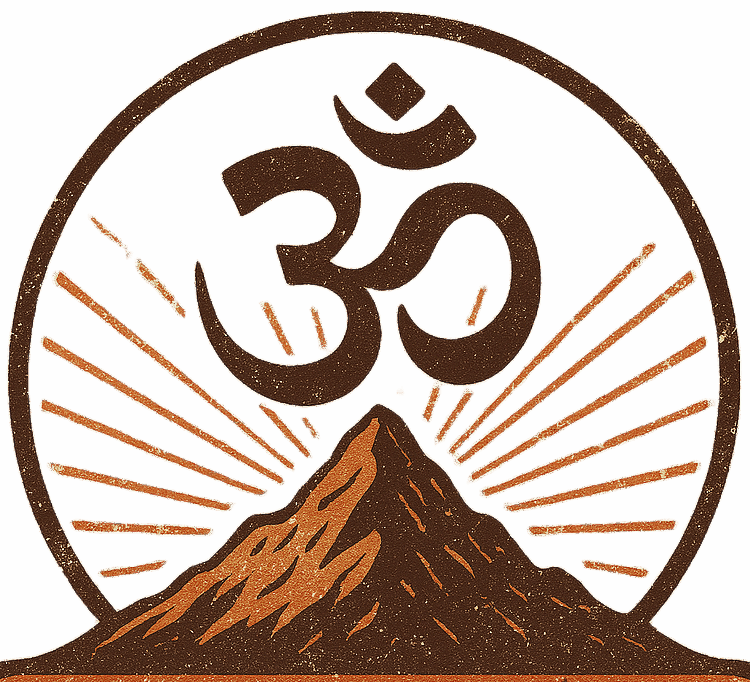“Appamādo amatapadaṃ, pamādo maccuno padaṃ”
“Vigilance (heedfulness) is the path to the Deathless; negligence is the path of death” (Dhammapada 21)
The Absurd
Albert Camus saw time not as divine rhythm but as absurd repetition: “Rising, tram, four hours in the office… one day the ‘why’ arises, and everything begins in that weariness tinged with amazement” (The Myth of Sisyphus)¹. For him, time exposes the absurdity of existence when man perceives that the world offers no ultimate justification. Sisyphus, condemned to roll his stone, is the image of man condemned to days without transcendent meaning.
Kafka deepens this vision with terror: time becomes bureaucratic delay, endless waiting before a door that never opens (Before the Law)². In his universe, the hour is haunted by postponement, the eternal deferral of grace. If Hesiod’s ages declined, Kafka’s hours simply defer.
Revolt and Freedom
Camus’ answer to absurd time was revolt: to embrace life without illusion, yet without resignation. “One must imagine Sisyphus happy”. But revolt is not merely defiance; it is a temporal stance. To rebel is to inhabit the hour fully, without appeal to a future beyond it. Here Camus unwittingly comes close to Vedantic and Zen insight: eternity is not at the end of time, but in the density of each moment.
The Mystic Hour
Ramakrishna, in contrast, saw time as shimmering with the presence of the Divine: “When the flower blooms, the bees come uninvited”³. For him, the hour is not absurd but self-revealing; the Divine descends when ripeness arrives. This is not linear time but kairos: the opportune moment in which God discloses himself.
Krishnamurti stripped this further: “Truth is a pathless land… the observer is the observed”⁴. For him, psychological time, as in the endless projection of past into future, is the root of suffering. The sacred is found only when time as accumulation ends. The Ompyrean Doctrine of Time, then, is paradoxical: to live rhythmically in cosmic cycles, yet inwardly to dissolve the tyranny of psychological time.
Silence and Listening
Vimala Thakar, inheriting Krishnamurti’s mantle, insisted that the human revolution begins with silence: “Meditation is a state of total attention where the division between observer and observed ceases”⁵. Time here is neither absurd nor cyclical, but transparent. When there is silence, the hour is not used but inhabited.
Osho dramatized this paradox: “Mind is nothing but the accumulated past; meditation is slipping out of the mind into the freshness of the present”⁶.
Toward Integration
How shall we integrate these voices into the Doctrine? Each thinker or mystic provides not a contradiction but a facet of a larger diamond. Time is a prism refracting many lights: absurd, ripening, dissolving, and playful. To read them together is to enter a dialectical struggle of complementarity.
Camus and Kafka: Absurdity and Bureaucracy
Camus and Kafka remind us of the danger of reducing time to mere sequence without transcendence. In Camus’ vision, the daily rhythm of work, meals, and sleep collapses into an endless treadmill. The question why arises, and time becomes a suffocating absurdity. His solution is not escape but revolt: to affirm the day even without justification, to find joy in the very act of persistence.
Kafka reveals a darker angle. In his world, time is devoured not by repetition but by bureaucracy: infinite waiting, endless delay, a perpetual deferral of access to meaning. Before the Law is not simply a parable about God but about the way time itself can become a labyrinth, each hour another postponement. Kafka thus complements Camus: not only can time become absurd in its repetition, it can also become monstrous in its delay.
From these two, the Doctrine of Time learns humility: time without transcendence is dangerous. One must not presume that every hour is filled with grace; many hours are hollow, distorted, or hostile. To be Vigilant is to recognize when time has decayed into absurdity or bureaucracy, and to resist both with lucidity.
Ramakrishna: Ripeness of Grace
If Camus and Kafka describe desolation, Ramakrishna affirms abundance. His metaphors of blossoming flowers and bees convey a temporal truth: grace descends not on command, but when the moment is ripe.
Time is not uniform; it is saturated with ripening processes, hidden gestations, and sudden revelations.
Ramakrishna’s teaching prevents despair: even if many hours seem barren, the flowering will come. Our Doctrine of Time thus absorbs his insistence that one must remain patient, cultivating devotion and sincerity, until the hour of blossoming arrives. Time, for him, is not absurd or deferred but fecund and always secretly ripening toward disclosure.
Ending Psychological Time
Where Ramakrishna affirms ripeness, Krishnamurti and Vimala Thakar insist on immediacy. For them, the central problem is not outer cycles but psychological time: the projection of past into future, the endless deferral of being present. Krishnamurti’s declaration that “truth is a pathless land”⁶ means that liberation is not found by moving forward in time but by ending the inner machinery of becoming. Vimala Thakar refines this by describing meditation as the dissolution of the observer/observed divide.
Together, they introduce an inward dimension to the Doctrine: while outer time must be read symbolically, inner time must be dissolved. Without this, even symbolic readings of the cosmos risk becoming new forms of escape, new projections of a future that never arrives. In Osho, our Doctrine finds its balance. Too much attention to absurdity breeds despair; too much focus on ripeness breeds passivity; too much inward silence risks detachment. Play reintroduces spontaneity, reminding us that time is not only endured or dissolved but celebrated
Exile and Return
Man stands between exile and return. Camus saw exile without return. Ramakrishna saw return without exile. The truth may be both: the hour wounds and heals, empties and reveals. To be Vigilant is to hold the paradox: to walk with Sisyphus up the hill, yet to perceive Uṣas opening the sky; to endure Kafka’s waiting room, yet to taste Buddha’s triumph.
- Camus, Albert. The Myth of Sisyphus. Trans. Justin O’Brien. New York: Vintage International, 1991. (Orig. 1942). See “An Absurd Reasoning,” p. 12.
- Kafka, Franz. Before the Law. Written 1915, published in Ein Landarzt (1919); later included in The Trial (1925).
- Nikhilananda, Swami (trans.). The Gospel of Sri Ramakrishna. New York: Ramakrishna-Vivekananda Center, 1942.
- Krishnamurti, J. “Truth is a Pathless Land” speech, 1929 (Ommen, The Netherlands).
- Thakar, Vimala. Meditation: A Way of Life. Ahmedabad: Adarsh, 1972.
- Osho (Bhagwan Shree Rajneesh). The Book of Secrets: 112 Meditations to Discover the Mystery Within. New York: St. Martin’s Press, 1974.

